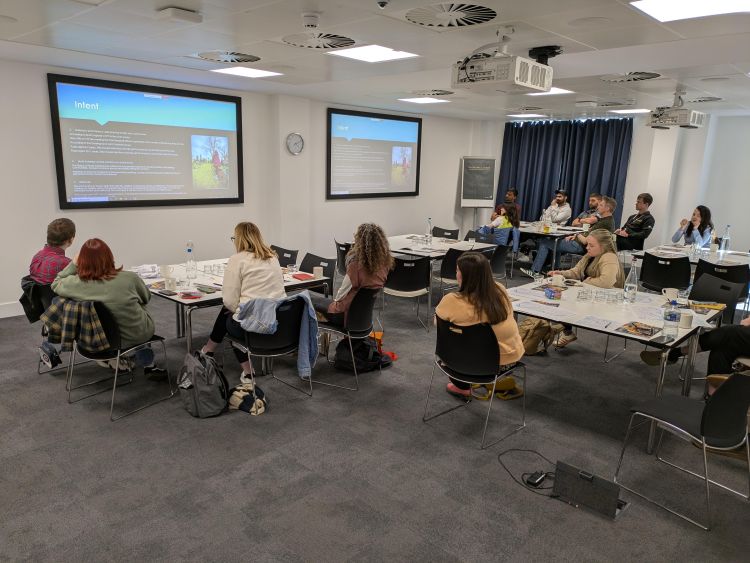Launch of a new toolkit to engage young people in travel planning

A new toolkit aimed at helping organisations gather the voices of young people on active travel has been launched.
On the 7 April, a new toolkit was launched at a well-attended hybrid event that brought together over 50 professionals, educators, and youth advocates from across the region and beyond.
The toolkit is designed to support schools, youth groups, councils, and community organisations in meaningfully engaging young people in conversations about how they travel – and how they’d like to. With a focus on equity, safety, and sustainability, the toolkit provides flexible resources for consulting with children and teenagers on the barriers they face to making more active travel choices.

Oliver Huermann, a member of Stand Together, a youth-led group in Hartlepool committed to improving their town, shared how the group used the toolkit to engage their peers in discussions about safe travel routes. The resulting feedback led to real-world changes, including the installation of better lighting and the removal of obstacles near pathways that were seen as unsafe.
We also had presentations from other groups that were engaged in Active Travel or Youth Participation initiatives, to highlight what was possible:
Head Teacher Christopher Harrison, together with Niall O'Brien, shared the inspiring work being done at Oatlands Infant School. Their initiatives, such as introducing bike libraries and launching a biking bus, have encouraged more families to choose active travel. These practical solutions have not only reduced car congestion at school gates but also supported children in developing healthy habits from a young age.
Gemma Bridge, presented her work on developing inclusive approaches for consulting with young people. Drawing on experience from both community settings and academic research, Gemma’s work in developing the EPYiC tool kit is another approach to consulting with young people.
The event also heard from Morgan Campbell of the Faculty of Environment at the University of Leeds, who explored the concept of mobility justice – a framework that considers how inequalities in transport systems affect different communities, especially young people.
Leeds City Council’s Influencing Travel Behaviour team rounded off the presentations by reflecting on their work with local schools. Their initiatives focus on making walking, cycling, and scooting to school safer and more attractive options for children and their families. They highlighted successful collaborations with school communities and shared lessons learned from recent projects.
This toolkit originated from a project led by Dr Peter Hart, Lecturer in Inclusion, Childhood and Youth at the School of Education, Young People & Active Journeys in Leeds – a project trying to capture young people’s perspectives on how to improve opportunities for active travel around Leeds.
The new toolkit, underpinned by research and real-life experience, is now available for organisations looking to put young people at the heart of active travel planning. With safety, access, and youth empowerment at its core, it represents a key step toward more inclusive and sustainable transport systems.
Gemma Bridge is the Director of Bridge Research, who specialises in consultancy with young people.
Niall O’Brien is the Education Manager at North Yorkshire Sport, and works with Oatland Primary School.




